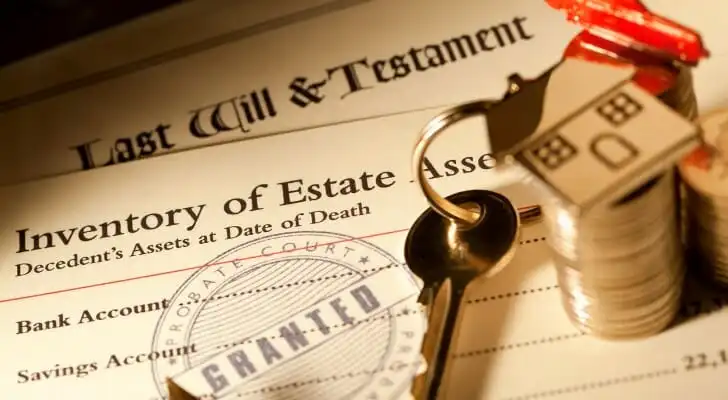Understanding Inventory Assets in Texas Probate
Inventory assets refer to all the property and items that belong to a deceased person at the time of their passing. In Texas probate, understanding what constitutes inventory assets is crucial for the proper administration of an estate. This includes real estate, personal belongings, financial accounts, and any other valuable items that need to be accounted for during the probate process.
For instance, when a person dies, their executor is responsible for compiling a detailed inventory of all assets. This inventory serves as a foundational document in probate proceedings, helping to ensure that debts are settled and assets are distributed according to the deceased's wishes, as outlined in their will.
The Role of Executors in Managing Inventory Assets
Executors play a vital role in managing inventory assets during the probate process. Appointed by the deceased's will or the court, an executor is tasked with overseeing the estate's administration, which includes identifying and valuing all inventory assets. Their responsibilities ensure that all legal and financial obligations are met before assets are distributed to beneficiaries.
For example, an executor must not only compile the inventory but also may need to arrange for professional appraisals if the value of certain assets is disputed or unclear. This ensures transparency and fairness in the distribution process, protecting the interests of both the estate and the beneficiaries involved.
When to Seek Professional Appraisals for Inventory Assets
While not all inventory assets require professional appraisals, there are specific circumstances where seeking expert valuation is advisable. High-value items, such as real estate or collectibles, may significantly impact the estate's overall value and require an accurate assessment to ensure proper distribution among heirs.
For instance, if an estate includes a family heirloom with uncertain market value, an appraisal can provide clarity and help avoid potential disputes among beneficiaries. Additionally, appraisals can be essential for tax purposes, ensuring that the estate complies with IRS requirements and accurately reports the value of inherited assets.
Common Challenges in Managing Inventory Assets During Probate
Managing inventory assets during probate can present various challenges, including disputes among heirs, valuation disagreements, and the complexity of certain assets. Executors must navigate these hurdles while adhering to legal obligations and maintaining impartiality to ensure a smooth probate process.
For example, family members may have differing opinions on the value of personal property or may contest the validity of certain assets included in the inventory. Executors must be prepared to address these issues, potentially seeking legal advice or mediation to resolve conflicts and uphold the integrity of the probate process.
Understanding Inventory Assets in Texas Probate
Inventory assets refer to all the property and items that belong to a deceased person at the time of their passing. In Texas probate, understanding what constitutes inventory assets is crucial for the proper administration of an estate. This includes real estate, personal belongings, financial accounts, and any other valuable items that need to be accounted for during the probate process.
For instance, when a person dies, their executor is responsible for compiling a detailed inventory of all assets. This inventory serves as a foundational document in probate proceedings, helping to ensure that debts are settled and assets are distributed according to the deceased's wishes, as outlined in their will.
The Role of Executors in Managing Inventory Assets
Executors play a vital role in managing inventory assets during the probate process. Appointed by the deceased's will or the court, an executor is tasked with overseeing the estate's administration, which includes identifying and valuing all inventory assets. Their responsibilities ensure that all legal and financial obligations are met before assets are distributed to beneficiaries.
For example, an executor must not only compile the inventory but also may need to arrange for professional appraisals if the value of certain assets is disputed or unclear. This ensures transparency and fairness in the distribution process, protecting the interests of both the estate and the beneficiaries involved.
When to Seek Professional Appraisals for Inventory Assets
While not all inventory assets require professional appraisals, there are specific circumstances where seeking expert valuation is advisable. High-value items, such as real estate or collectibles, may significantly impact the estate's overall value and require an accurate assessment to ensure proper distribution among heirs.
For instance, if an estate includes a family heirloom with uncertain market value, an appraisal can provide clarity and help avoid potential disputes among beneficiaries. Additionally, appraisals can be essential for tax purposes, ensuring that the estate complies with IRS requirements and accurately reports the value of inherited assets.
Common Challenges in Managing Inventory Assets During Probate
Managing inventory assets during probate can present various challenges, including disputes among heirs, valuation disagreements, and the complexity of certain assets. Executors must navigate these hurdles while adhering to legal obligations and maintaining impartiality to ensure a smooth probate process.
For example, family members may have differing opinions on the value of personal property or may contest the validity of certain assets included in the inventory. Executors must be prepared to address these issues, potentially seeking legal advice or mediation to resolve conflicts and uphold the integrity of the probate process.

